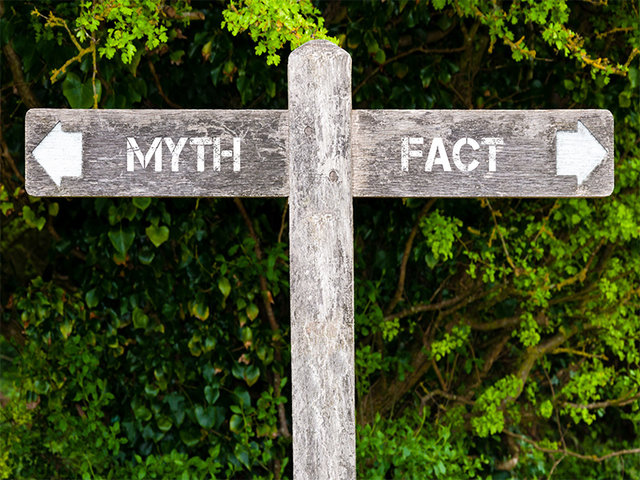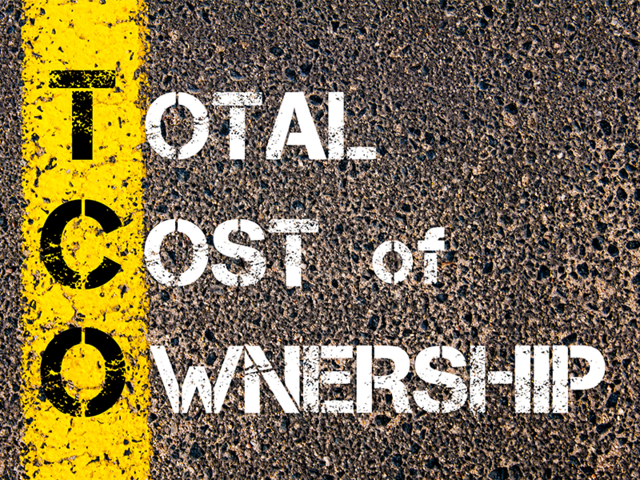Here on the Island, we’re lucky enough to (usually) have our winter delayed until around late November, still it’s better to be prepared for the cold weather before you’re caught in a snowstorm. Here are some easy steps that you can take to take care of your vehicle, so it can take care of you this winter. Step 1: Seasonal Maintenance Check Up Vehicle Maintenance isn’t seasonal, but as the...

Credit can be hard to understand, after all we don’t learn about in school. This confusion is often made worse by common misconceptions you hear from well meaning friends and family. VIDrives is a dedicated team of credit, financing and vehicle specialists that are here to help you understand, navigate and improve your credit– Read on for our guide to the top 6 Credit Myths.
Myth #1: Checking your score hurts your credit
Don’t worry, this isn’t true! You can request and receive your credit score without triggering penalty on your credit profile. However, when you apply for a loan, credit card, or line of credit- this may affect your credit score when a third party requests your credit report.
If you’re interested in checking your credit score, look for a tool in your online banking, or one of the two national credit bureaus- Equifax and Trans Union.
Myth #2: Cosigning does not affect your credit
Even if you co-sign on a loan, you may have the responsibility for that debt in the event the other party misses payments. Your credit will be affected just like theirs.
Myth #3: Cancelling credit cards improves credit health
We understand the logic of this, but it doesn’t exactly work this way. A big part of how your credit score is calculated is utilization, and clipping a credit card decreases the amount of credit available to you- which increases your utilization- you’re better off paying down the balance and not touching that card. Additionally- closing the credit card will not remove it from your credit report- and will stay on your profile for up to 6 years.
Myth #4: Higher Income means a Higher Credit Score.
Credit scores generally reflect how well you’ve paid your bills, not how much money you have available to pay your bills. It can be easier to improve your credit with a higher salary, but only because that makes it easier to pay down, or pay off your loans. Additionally, creditors may approve you for larger loans when you have a higher income.
Myth #5: Paying the minimum keeps your credit score up
While making payments won’t lower your credit score, the interest accrued may- over time increase your utilization and hurt your score. Keep making your payments of course, but it’s important to ensure that you’re taking other measures if you hope to increase your credit score.
Myth #6: Divorce takes away your former spouse’s bad credit habits.
This isn’t necessarily true. Your joint accounts won’t automatically split after a divorce is finalized- so it’s important to contact your creditors and ask them to convert your joint accounts into individual accounts- to ensure that your former spouses money habits no longer affect your credit. Additionally, closed Joint accounts may continue to report on your credit bureau.
Still have questions?
Not to worry! Check out our blog for more information about financing and credit, or take advantage of our complimentary options review to help you understand your own credit- It’s free and won’t affect your credit score.
Other Articles That May Interest You
Getting your car professionally detailed gets pricey fast, but frequent cleaning is an important habit to keep your vehicle in good condition- That’s why many drivers opt for an affordable DIY Detail. Here are some tips, product recommendations and advice to save you some time and money when you’re detailing your car. Find a comfortable workstation Even with the best tools and strategy,...
Many dealerships advertise low payments, but there’s usually a catch. Whether it be high down payments, not including the taxes, being quoted a lower interest rate than you qualify for- and then you have to consider other budget factors! True cost of ownership is made up of your monthly payments, yearly maintenance and how much you may need to save towards that, the cost of fuel, and your...





